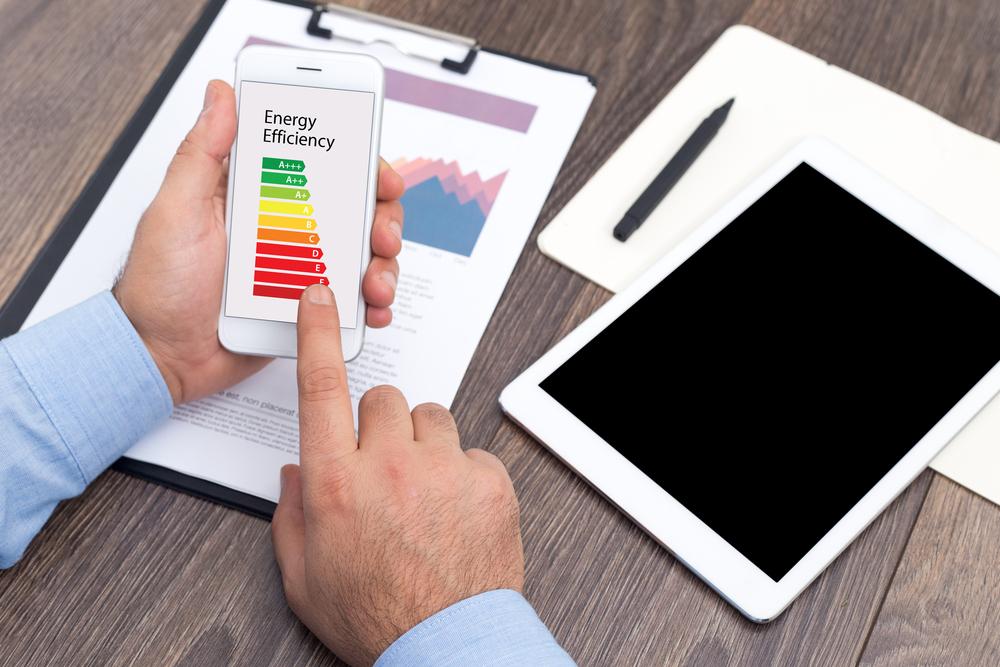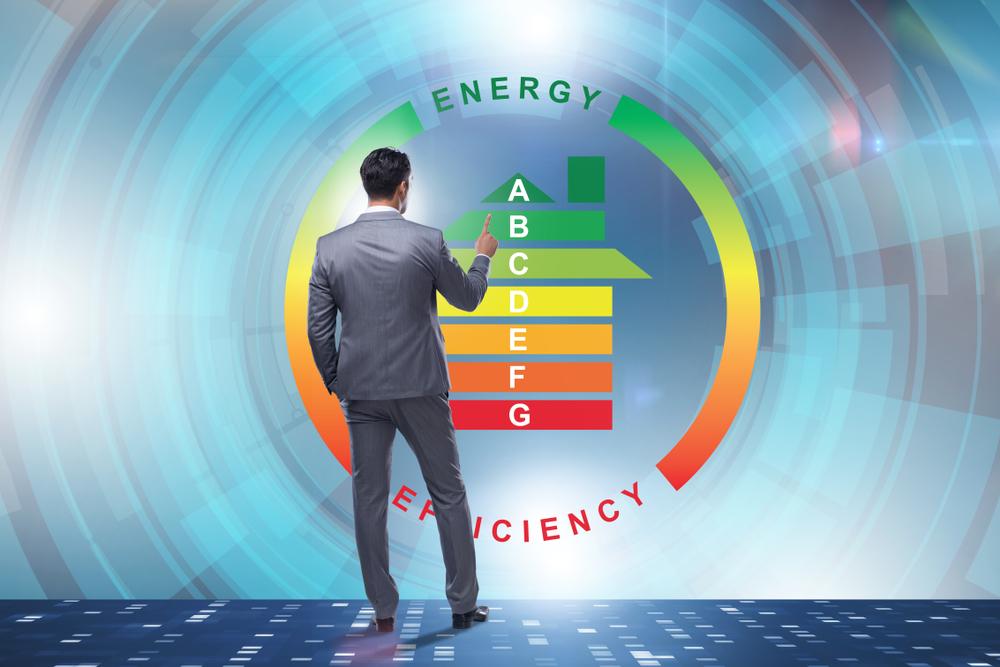In today’s rapidly evolving business landscape, where sustainability and environmental responsibility have become paramount, energy efficiency stands as a crucial factor for organizations striving to thrive in the long run. Implementing energy-efficient practices not only reduces operational costs but also contributes to mitigating environmental impacts, making it a win-win situation for both businesses and the planet. To achieve meaningful progress in energy efficiency, businesses must focus on tracking and measuring their performance in this domain. In this article, we will explore the importance of energy efficiency, delve into the methodologies of measuring it, and provide actionable steps for businesses to optimize their energy consumption effectively.
Introduction
Energy efficiency has emerged as a pivotal aspect of business operations, transcending industries and sectors. Its significance lies in the ability to minimize energy consumption while maintaining optimal performance levels. By embracing energy-efficient practices, businesses can reduce their carbon footprint, contribute to global sustainability efforts, and create a positive brand image that resonates with environmentally conscious consumers.
Understanding Energy Efficiency
Energy efficiency can be defined as the ratio of useful output energy to the total input energy. In simpler terms, it entails achieving the same output while using less energy. By adopting energy-efficient technologies and practices, businesses can enhance their operational efficiency and save costs on utility bills. Furthermore, improved energy efficiency promotes a culture of environmental responsibility, leading to long-term sustainability.
Energy efficiency doesn’t just benefit the bottom line; it also plays a crucial role in addressing the global energy challenge. As businesses consume a significant portion of the world’s energy supply, their commitment to energy efficiency directly impacts the planet’s overall energy demand and environmental health. By reducing energy consumption, businesses can help decrease greenhouse gas emissions and combat climate change.
Setting Energy Efficiency Goals

To embark on an effective energy efficiency journey, businesses must establish clear and measurable goals. These objectives serve as the guiding principles for energy consumption optimization. Key Performance Indicators (KPIs) play a vital role in tracking progress toward these goals. Common KPIs for energy efficiency include energy consumption per unit of production, energy usage intensity, and greenhouse gas emissions per unit of revenue.
Setting ambitious yet achievable energy efficiency goals is vital. By analyzing historical energy consumption data and considering the organization’s specific needs and challenges, businesses can establish realistic targets for improvement. Additionally, benchmarking against industry peers can provide valuable insights into the potential for optimization.
Data Collection and Management
Data serves as the foundation for energy efficiency tracking and decision-making. Businesses need to identify and utilize reliable data sources for energy consumption measurement. Smart meters and monitoring systems provide real-time insights into energy usage patterns, enabling businesses to identify areas of improvement. Data accuracy and integrity are of utmost importance as they ensure reliable analysis and precise evaluation of energy efficiency initiatives.
Proper data management involves collecting, storing, and analyzing energy-related data efficiently. With advancements in data analytics and cloud computing, businesses can now leverage technology to process vast amounts of energy data in real-time. This capability enables timely identification of anomalies and deviations, leading to prompt corrective action and increased overall efficiency.
Implementing Energy Management Systems
Energy Management Systems (EMS) are powerful tools that streamline energy efficiency tracking and management. These software solutions assist in consolidating data from various sources, analyzing energy consumption patterns, and generating comprehensive reports. By leveraging EMS, businesses can identify inefficiencies, set targets, and implement energy-saving measures effectively.
The implementation of an EMS requires thorough planning and collaboration between different departments within the organization. Key stakeholders, including management, facility managers, and operations personnel, must work together to define the scope and goals of the EMS. Integrating EMS with existing infrastructure and building management systems further enhances its effectiveness.
Conducting Energy Audits
Energy audits are essential in comprehensively assessing a business’s energy consumption and identifying potential energy-saving opportunities. These audits involve a detailed inspection of energy usage, equipment, and facilities. By conducting an energy audit, businesses can pinpoint energy wastage, upgrade inefficient equipment, and optimize energy consumption across different processes.
Energy audits can be categorized into two types: internal and external. Internal audits are conducted by the organization’s in-house team, while external audits are performed by specialized energy consultants. Both types of audits offer valuable insights, and the choice depends on the organization’s resources and expertise.
Technology and Automation for Energy Efficiency
Innovation in technology has revolutionized energy efficiency practices. Businesses can now harness the power of automation and Artificial Intelligence (AI) to optimize energy consumption. Internet of Things (IoT) devices enable real-time monitoring and control of energy-consuming systems, ensuring efficient operation. From smart lighting systems to automated HVAC controls, technology plays a vital role in driving energy efficiency in businesses.
Automated systems can adjust energy usage based on real-time demand and occupancy, reducing unnecessary consumption during periods of low activity. Moreover, predictive analytics powered by AI can forecast energy requirements, enabling businesses to optimize energy usage proactively.
Employee Engagement and Training
Employees are pivotal in the success of any energy efficiency initiative. Engaging employees and raising awareness about the significance of energy conservation can foster a culture of responsibility within the organization. Training programs further empower employees to adopt energy-efficient practices and become advocates for sustainable behavior.
To promote employee engagement, businesses can organize workshops, seminars, and training sessions focused on energy conservation. Encouraging employees to participate in energy-saving initiatives and recognizing their contributions through incentives can foster a sense of ownership and commitment towards energy efficiency goals.
Analyzing and Interpreting Energy Data
Data analysis techniques are instrumental in deriving meaningful insights from energy consumption data. Businesses can identify consumption patterns, detect anomalies, and assess the impact of energy-saving measures. By interpreting data effectively, organizations can make informed decisions, optimize energy usage, and continually improve their energy efficiency performance.
Data visualization tools are particularly valuable in simplifying complex energy data and presenting it in a user-friendly format. Interactive dashboards and graphical representations help decision-makers identify trends and patterns, facilitating data-driven decision-making.
Overcoming Challenges in Energy Efficiency Tracking
While energy efficiency offers numerous benefits, businesses may encounter challenges during implementation. Common obstacles include limited access to accurate data, capital constraints for technology upgrades, and resistance to change from employees. Overcoming these challenges requires proactive problem-solving, strategic planning, and fostering a company-wide commitment to sustainability.
To tackle data-related challenges, businesses can invest in data management systems that ensure data accuracy, security, and accessibility. Addressing financial barriers may involve seeking external funding or exploring financing options for energy-efficient upgrades. Resistance to change can be mitigated through comprehensive communication and engagement strategies that emphasize the benefits of energy efficiency for both the organization and its employees.
Monitoring Progress and Reporting

Regular monitoring of energy efficiency initiatives is essential to evaluate the effectiveness of implemented measures. Generating periodic reports enables businesses to track progress toward energy efficiency goals, identify areas of success, and highlight opportunities for further improvement. Data visualization plays a vital role in presenting complex information in an easily digestible format for stakeholders and decision-makers.
Businesses can establish reporting cycles, whether monthly, quarterly, or annually, to provide stakeholders with insights into energy efficiency performance. These reports can highlight achievements, outline upcoming initiatives, and showcase the organization’s commitment to sustainability and energy conservation.
Policy and Incentives for Energy Efficiency
Governments worldwide have recognized the significance of energy efficiency in combating climate change. Many have implemented policies and regulations to encourage businesses to adopt sustainable practices. Incentives and grants are also available to support businesses in their efforts to optimize energy consumption and reduce environmental impact.
To capitalize on available incentives, businesses should stay informed about local, regional, and national energy efficiency programs. Partnering with government agencies, industry associations, and energy consultants can provide valuable guidance and access to resources that facilitate compliance with energy efficiency regulations.
The Future of Energy Efficiency in Business
As technology continues to advance and environmental concerns escalate, energy efficiency will remain at the forefront of business strategies. Emerging trends, such as renewable energy integration, circular economy practices, and green certifications, will shape the future of energy-efficient businesses. Embracing these trends will not only future-proof businesses but also demonstrate a commitment to global sustainability.
The integration of renewable energy sources, such as solar and wind, will become increasingly common as businesses seek to reduce their reliance on fossil fuels. Circular economy practices, which focus on reusing and recycling resources, will gain traction as companies strive for resource efficiency. Additionally, green certifications, such as LEED (Leadership in Energy and Environmental Design) and BREEAM (Building Research Establishment Environmental Assessment Method), will continue to provide recognition for sustainable building and operational practices.
Conclusion
Energy efficiency is no longer an optional consideration for businesses; it is a fundamental aspect of responsible and sustainable operations. By tracking and measuring their energy efficiency performance, businesses can make informed decisions, reduce costs, and contribute positively to environmental preservation. Embracing innovative technologies, engaging employees, and setting clear goals will empower businesses to create a greener future while securing their own long-term success. Through collective efforts, businesses can be at the forefront of change and drive the transition towards a more sustainable world. By prioritizing energy efficiency, businesses can not only safeguard their bottom line but also play a significant role in shaping a more sustainable future for generations to come.
Discover Vertpro.com, your trusted source for expert Commercial Energy Audit and Benchmark Compliance consultancy. As an award-winning Energy Benchmarking and Audit Consultancy, we simplify energy compliance with innovative SaaS technology-based solutions. From Energy Benchmarking to Energy Audits/RCx Plus and a cutting-edge Construction Marketplace, our services cater to Building Owners & Property Managers nationwide, ensuring adherence to over 50 Energy Benchmarking & Energy Efficiency Laws. Unlock cost savings and streamline your energy management efforts with Vertpro.com today.

